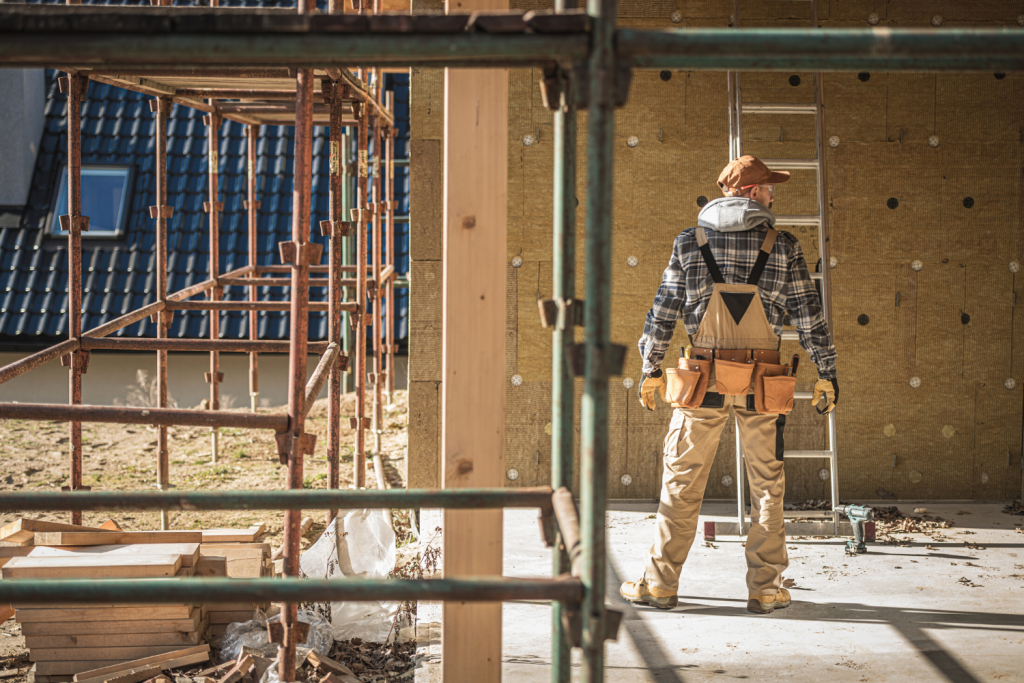Every house flipper has heard the horror stories about contractors doing poor work, disappearing before projects are completed, or doing some other unforgivable thing that puts the property behind schedule. But what do you do if that happens to you? If you’ve ever had to deal with a contractor that has delivered less-than-ideal results, this article is for you.
This is what to do when a contractor does poor quality work:
First, Fire Your Contractor (If You Can)
Firing your contractor may seem obvious, but still, it’s not easy, especially when you’re in the middle of a big project. Besides the obvious frustration, firing your contractor could also become a legal issue. Notably, your contractor may sue you in court, on the grounds that you have breached your contract with them.
Dealing with a professional contractor normally involves a mix of written and verbal contracts. You may consent to a price and materials over the phone, or you may sign an itemized estimate and invoice with the contractor. Certainly, you should have a written contractor or agreement during every step of the project, if possible.
In any event, if a contractor’s work does not match the guidelines outlined in the contract, the homeowner will likewise have grounds to commence a breach-of-contract lawsuit.
In fact, even if you don’t have a written contract, work that rapidly deteriorates or completed with subpar products and materials could still possibly be grounds for a breach of agreement lawsuit.
To cover yourself, document each time the contractor doesn’t comply with the terms of the agreement. Likewise, send out a return-receipt letter to the contractor’s business and home address stating that unless the issue is remedied within a specified number of days, the contractor will be deemed in breach of the contract, and you will be ending it.
No matter which route you choose, proceed with caution, keep in mind that the contractor probably won’t refund you any money you have paid them. As such, if you’ve paid any upfront deposits, you run the risk of losing it once you fire the contractor.
If The Contractor Is Bonded, Submit A Claim With The Proper Agency
Professional licensed contractors can purchase a surety bond policy from their insurance agent, to protect their business against customer complaints and disputes. Essentially, these bonds protect clients like you from poor work.
As such, if the contractor is covered, you have the option of calling their insurance agent to submit a claim. To protect yourself in this situation, you should get the contractor’s information upfront. Typically, when contractors get into disputes with their clients, they may start ignoring the client or won’t return phones. In any event, having the contractors’ bond information opens another option for you, as the contractor’s insurance company will compensate you for your losses in the event you file a claim. They will pursue the contractor to repay them, which no contractor wants.
File A Complaint With The Applicable State Licensing Board
One advantage of using a licensed contractor is that you can report disputes and issues to your state licensing board. To avoid losing their license and to stay in good standing, contractors will often remedy the problem to avoid dealing with the state’s licensing board.
Reporting your complaint to the state’s licensing board typically requires the contractor to either enter into a mediation hearing or solve their issue directly with you.
You can find this information on your state’s department licensing website, the name of the applicable website and agency will vary from some state to state. Likewise, the procedure to sue the contractor varies by state, so call the department or go online to get all the information you need.
Hire An Attorney
Hire a real estate or construction attorney who knows the ins and outs of state statutes and can look for weaknesses in your contract that benefits you. If the contractor has vanished altogether, you may be able to receive compensation from your state’s recovery fund. An experienced attorney will be able to guide you through this process.
The only downside to hiring an attorney is that attorneys are costly. Therefore, unless you stand to lose a lot of money, hiring an attorney may not be the most financially prudent option.
File A Case In Small Claims Court
In small claims courts, you represent yourself and pay just a few dollars to commence a case. The guidelines depend upon your local jurisdiction. However, usually, a judge speaks with both parties, asks questions, and then settles the dispute in accordance with the applicable law.
The only thing to be aware of is that small claims court is for smaller disputes. Generally, a small claims court case is for disputes under $15,000. However, the maximum amount is determined by each jurisdiction, so you will have to confirm whether your claim qualifies to be heard in small claims court.
Leave A Bad Review
Lastly, various websites permit you to post info about bad contractors (e.g., Angieslist.com). While leaving a bad review won’t necessarily fix your dispute, it may motivate some contractors to try to fix the problem so that you can retract your bad review altogether. At the very minimum, a bad review will put other similarly situated homeowners on notice so that they don’t fall victim to the same fate.
Knowing how to handle this situation is particularly important if you are new to real estate investing.

